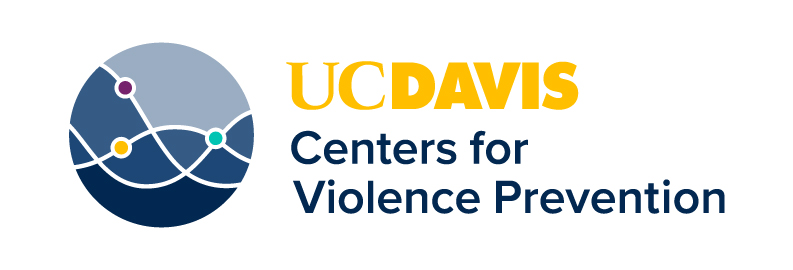Violence Prevention Education and Training
Professional Training in Violence Prevention Research
Despite tremendous growth in recent years, the pool of junior and senior investigators focused on firearm violence is disproportionately small when compared with those of other public health burdens. We have a longstanding commitment to training new violence researchers and experts to facilitate a sustained and successful violence prevention effort.
Undergraduate and graduate education and training
CVP fosters the growth of the next generation of violence researchers through teaching, mentorship, and other training opportunities.
Courses taught by CVP faculty at UC Davis:
- SPH 298: Scientific Communication for Public Health Researchers (School of Medicine)
- First Year Seminar: Gun Violence, Public Health, and Equity
- SPH 220: Mixed Methods Approaches to Structural and Community Violence (School of Medicine)
- SPH 198-017: Gun Violence in Interdisciplinary Perspective (School of Medicine)
- ECON 190: Economics of Crime and Punishment (Department of Economics)
- EPI 206: Epidemiologic Study Designs (Graduate Studies)
- SPH 102: Introduction to Human Epidemiology (School of Medicine)
- SPH 106: Intermediate Epidemiology (School of Medicine)
- HDE 137: Contextual Determinants of Health (College of Agricultural & Environmental Sciences)
Students interested in training at CVP are encouraged to send their resumes and specific interests to hs-cvp@ucdavis.edu.
Postdoctoral Fellowship in Violence Prevention Research
Our postdoctoral fellowship is an opportunity for those who have completed a doctoral degree to join our team for up to two years to advance their studies. Recognizing that violence prevention is an expansive and multidisciplinary field, we welcome outstanding investigators whose work addresses the causes, consequences, and prevention of multiple forms of interpersonal and self-directed violence in the United States. Fellows collaborate on existing research projects and lead studies and grant proposals of their own initiative, all with support and mentoring from our faculty.
We are not currently accepting applications. Send inquiries to hs-cvp@ucdavis.edu.
Research Grant Award Program
As part of our effort to grow the field of violence research, we support external investigators through the California Firearm Violence Research Center's (CA-FVRC) research grant award program. The program offers small and large grants to support rigorous and equitable research on the causes, consequences, and prevention of violence and evaluations of policies and interventions for reducing firearm-related harm.
Professional Training for Clinicians
The BulletPoints Project teaches medical and mental health care providers how to reduce the risk of firearm injury in their patients. Through a variety of training materials, BulletPoints helps clinicians become more informed, more effective partners in keeping their patients safe and in reducing the overall burden of firearm injuries.
BulletPoints Project
The BulletPoints Project website is designed to provide clinicians with the knowledge and tools they need to discuss the risks of firearm access with their patients and to intervene when someone is at increased risk.
Learn More
Continuing Education Course
Preventing Firearm Injury: What Clinicians Can Do is a free, 60-minute course focusing on areas where clinicians can help reduce the risk of firearm-related injury and death, including suicide, dementia, intimate partner violence, unintentional injury, and mass shootings. Learners can earn one Continuing Education (CE) credit from the California Medical Association (CMA) or the American Psychological Association (APA).
Learn More
Educator’s Toolkit
This Educator’s toolkit is designed for clinical educators who are interested in teaching about the prevention of firearm injury and death. The toolkit activities were created with learners of varying backgrounds in mind, including medical, nursing, social work, and psychology students. They can be incorporated into a wide range of settings, from large lectures to small group discussions.
Learn More



